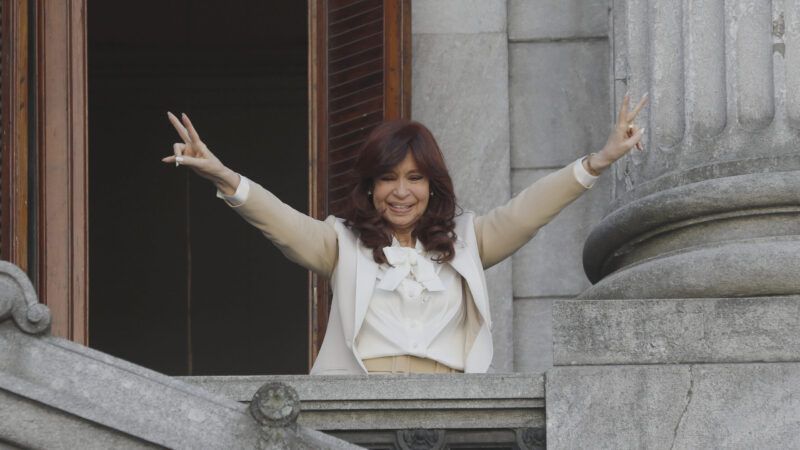Argentina's Former President Gets 6 Years and a Lifetime Political Ban
Cristina Fernández de Kirchner’s six-year prison sentence and lifetime political ban mark a historic victory for accountability—and a public eager to believe that no one is above the law.

In an unprecedented event, Argentina's Supreme Court has confirmed the sentence of former President Cristina Fernández de Kirchner, who was found guilty in a 2022 corruption case. The leader of modern Peronism in the country has been sentenced to six years in prison, although she can request to serve under house arrest as she is over 70 years old. The sentence also carries a lifetime ban from holding public office.
The fact that a political figure with Kirchner's background and level of popularity is facing the end of her political ambitions is something unseen in Argentine judicial and political history. However, the ruling also emphasized the need for economic repair for the damages caused to public assets. Along those lines, the judges also ruled Kirchner and eight others must return almost 685 billion Argentine pesos (more than $540 million).
This ruling is the outcome of a lengthy judicial process that began in 2016 and faced pressure and attempts at political, electoral, media, and social sabotage. Because the case developed in a climate of great political tension, many supporters of the Justicialist Party (the largest branch within Peronism), along with Kirchner herself, claim that the ruling is a political maneuver to keep her out of the September election for a seat in the Buenos Aires City Legislature after she recently confirmed her candidacy. Another narrative frames every judicial move as part of a broader strategy of "lawfare"—using legal tools to weaken political opponents.
Kirchner and her political defenders never focus on the cases of corruption and obscene theft of public resources in which many former officials played major roles. For them, everything boils down to an effort by the ruling party—La Libertad Avanza, led by President Javier Milei—to consolidate power and, ultimately, ban Peronism.
But this time, those arguments had no effect in overshadowing what the justice system managed to uncover and prove: Kirchner and her collaborators stole from the Argentine people through the creation of an illicit organization to redirect public works funds to benefit businessman Lázaro Báez, another recurring character in the country's corruption saga. The operation began under Nestor Kirchner's presidency (2003–2007) and continued during her terms (2008–2011 and 2012–2015).
It was a slow, rigorous, and exhausting investigation. As new cases against Kirchner emerged, many Argentines lost hope that anyone would ever receive a final conviction. This ruling, in addition to setting a precedent, should be a lesson for the entire political class: No one is above the law, and criminal behavior carries consequences. The public saw the verdict as a direct message, with a certain sense of vindication at a time when public trust in republican institutions is eroding.
It's reasonable to wonder whether Milei has been involved with all this. From the moment he took office, he has been clear in his intention to transform and reshape the country. Although the president continues to earn praise for his administration's economic performance, this event goes beyond his own will. Argentinians long to return to fundamental values—to live in a country with a thriving economy, a stable democracy, laws that respect individual freedoms, and one where a corruption conviction is the rule, not the exception.
In Kirchner's own words to her followers on the day of the verdict: "The Argentina we're living in today continues to surprise us." On that point, she's right. It was a pleasant surprise to find out that the institutions work and that there was justice, after all.


Show Comments (29)